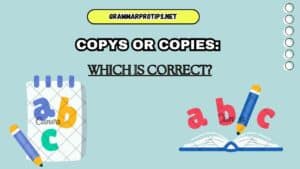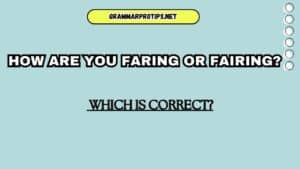When it comes to English grammar, hyphenation rules in English can be tricky. A common example that confuses many writers is whether to write half day or half-day.
You might see both versions used in emails, school notices, work schedules, and company policies. But which one is actually correct? The answer depends on noun vs adjective usage.
Let’s explore the meaning, the correct contexts, and real-life examples so you can confidently decide whether to write half day or half-day.
Also Read: Requester vs Requestor: What’s The Proper Choice?
Understanding the Difference
The key distinction lies in how the phrase functions in a sentence:
- Half day (noun, no hyphen): Used when the phrase itself stands alone as a noun.
- Half-day (adjective, with hyphen): Used when describing another noun and working as a modifier.
This difference might seem small, but it affects sentence structure clarity and aligns with formal writing conventions.
Half Day as a Noun
When you use half day as a noun, it simply refers to a time span either the morning or afternoon portion of the day. It can appear in conversations about work schedules, school schedules, clinic timings, or even personal work-life balance.
Examples in Context
- Work schedule:
“I’m taking a half day on Friday to attend my cousin’s wedding.” - School schedule:
“Due to the sports event, students will have a half day tomorrow.” - Clinic timings:
“Dr. Shah operates for only a half day on Saturdays.” - Work-life balance:
“Some companies now offer half days on Fridays to improve employee satisfaction.”
Email Example (Half Day as a Noun)
📩 Subject: Request for a Half Day
Hello Ms. Rodriguez,
I hope you’re doing well. I’d like to request a half day this Thursday (8 AM – 1 PM) as I have an important family commitment in the afternoon. Please let me know if you need further details.
Thank you for your understanding.
Best regards,
David Chen
Notice here that half day is written without a hyphen because it is functioning as a standalone noun.
Also Read: Igniter or Ignitor: Which Spelling Should You Choose?
Half-Day as an Adjective
When the phrase is used to describe another noun, it becomes an adjective. In this case, it should be hyphenated as half-day. This prevents confusion and ensures proper sentence structure clarity.
Typical uses include describing events, programs, and schedules, such as:
- half-day meeting
- half-day training session
- half-day workshop
- half-day seminar
- half-day field trip
- half-day team-building activity
- half-day conference
Examples in Context
- “The company has arranged a half-day training session on workplace safety.”
- “We’re planning a half-day team-building activity next month.”
- “The students enjoyed their half-day field trip to the science museum.”
- “Tomorrow’s half-day conference will cover the latest industry trends.”
Email Example (Half-Day as an Adjective)
📩 Subject: Invitation to Half-Day Workshop
Dear Mr. Johnson,
You are invited to participate in a half-day workshop on effective communication skills scheduled for Monday, September 15th, from 1 PM to 5 PM. This interactive program is designed to enhance workplace collaboration and leadership abilities.
Please confirm your availability by Friday.
Best regards,
Caroline Moore
Here, half-day modifies the noun workshop, so the hyphen is required.
Morning Half-Day vs Afternoon Half-Day
Sometimes, organizations clarify whether the half day is in the morning or afternoon:
- Morning half-day (8 AM – 1 PM)
- Afternoon half-day (1 PM – 5 PM)
This breakdown is common in school schedules, company half-day policies, and clinic timings.
For example:
- “Students will have a morning half-day due to the teachers’ training program.”
- “I’ll be taking an afternoon half-day to attend a seminar.”
Also Read: Assonance vs Rhyme: What’s the Difference?
Plural Form: Half-Days
Whether as a noun or adjective, the plural of half-day is half-days.
Examples:
- “Our company allows two half-days of personal leave each month.”
- “The training will be divided into three half-day sessions.”
Why Hyphenation Matters
Hyphenation rules in English are about more than just style. They directly affect meaning and readability. Consider the difference:
- “We are offering a half day workshop.” (Could be misunderstood as half of a workshop day.)
- “We are offering a half-day workshop.” (Clearly states that the workshop lasts half a day.)
Proper hyphenation in formal writing hyphenation ensures sentence structure clarity and professionalism.
Formal Writing Conventions
In formal contexts such as reports, policies, or academic papers:
- Use half day when referring to the time span itself (noun).
- Use half-day when describing another noun (adjective).
Examples:
- “Employees are entitled to one half day leave per month.”
- “The HR department will conduct a half-day training program on compliance policies.”
Also Read: How Are You Faring or Fairing? Which Is Correct?
Common Mistakes to Avoid
- Using a hyphen with the noun form:
❌ “I will take a half-day tomorrow.”
✅ “I will take a half day tomorrow.” - Omitting the hyphen when it’s an adjective:
❌ “She attended a half day seminar.”
✅ “She attended a half-day seminar.” - Confusing plural usage:
❌ “They have three half day offs.”
✅ “They have three half-days off.”
FAQs
1. Half Day or Half-Day? Which is Correct?
Both are correct, but it depends on usage: half day (noun) vs half-day (adjective).
2. What is the plural form of half-day?
The plural is half-days, used in both noun and adjective contexts.
3. What are typical starting and ending times of a half day?
Usually, a morning half-day runs from 8 AM – 1 PM, and an afternoon half-day from 1 PM – 5 PM, though timings may vary.
4. How is it used in workplace and school contexts?
- At work: “I’m taking a half day at work to attend a family function.”
- At school: “Tomorrow is a half day at school due to the annual sports meet.”
5. Why is the hyphen important in formal writing?
The hyphen ensures clarity in sentence structure, making your writing professional and precise.
Conclusion
So, half day or half-day? Which is correct? The answer lies in grammar.
- Use half day when functioning as a noun, referring to the time span itself.
- Use half-day when functioning as an adjective, modifying another noun.
By following this rule, you’ll avoid common mistakes and achieve clarity in writing, whether you’re drafting an email request for personal leave, preparing a company half day policy, or sending invitations to a half-day training session.
Understanding English hyphenation rules may feel subtle, but these details make a real difference in professional and everyday communication.
Read more knowledgeable blogs on Grammar Pro Tips

Sienna Mauldon is a passionate writer and grammar expert. On her blog, she shares easy-to-follow guides to help readers master grammar rules and improve their writing. With a love for language and teaching, Sienna makes grammar simple and fun for everyone, from beginners to experienced writers.








